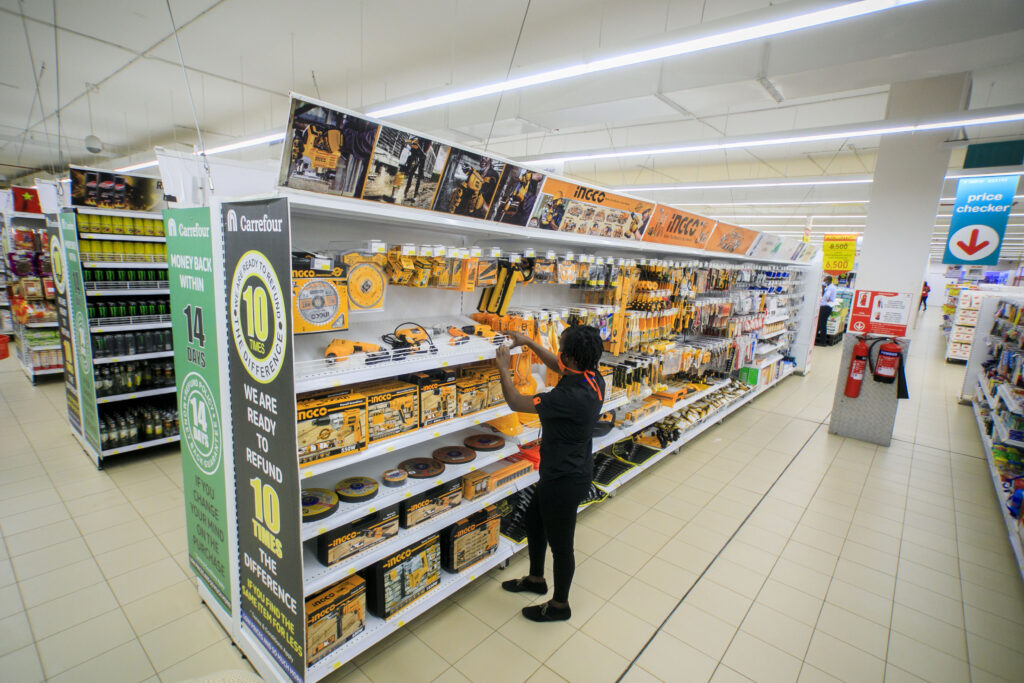The Synergy of Traditional Supermarkets and E-Commerce

In an era defined by rapid technological progress and shifting consumer behaviors, the retail landscape is undergoing a remarkable transformation. Traditional supermarkets are adapting to the digital age, and a promising avenue for this transformation lies in strategic partnerships with e-commerce companies. This collaboration not only enhances customer convenience but also propels the retail sector into an unprecedented realm of accessibility and choice.
In Uganda, this collaborative approach is reshaping the shopping experience. Traditional brick-and-mortar supermarkets, once the epicenter of retail activity, are seamlessly blending their physical presence with digital platforms. By teaming up with e-commerce giants, they are harnessing the potential to offer a harmonious fusion of in-store and online shopping.
Enhancing Convenience for Modern Consumers
Central to this partnership is the unwavering commitment to customer convenience. In a world marked by hectic schedules and diverse preferences, contemporary consumers seek flexibility in their shopping routines. The capacity to explore products, curate shopping lists, and complete purchases from the comfort of their homes or while on the move aligns seamlessly with this demand.
Evolving Uganda’s Shopping Landscape
Uganda’s supermarket landscape is progressively integrating e-commerce features. For instance, select supermarkets now showcase online catalogs mirroring their physical stores, granting customers access to a diverse array of products and prices prior to decision-making. This not only conserves time but also empowers shoppers to make informed choices. Moreover, the integration of e-commerce platforms facilitates efficient home deliveries. In urban centers like Kampala, where traffic congestion often hampers physical shopping, the allure of doorstep delivery resonates deeply with consumers. The option to have groceries and merchandise delivered directly to their residences is a game-changer for busy professionals, families, and individuals alike. Leading supermarkets are capitalizing on this trend, some by launching dedicated e-commerce portals (such as the innovative approach of Fraine Supermarket with dedicated call lines), while others like Carrefour, Quality Supermarket, and Capital Shoppers have embraced partnerships with established e-commerce platforms like Jumia and Glovo. These endeavors not only broaden the customer base but also establish supermarkets as pioneers in adopting groundbreaking retail solutions.
Navigating Challenges and Embracing Opportunities
However, this collaboration presents its own set of challenges. Ensuring precise online inventories, timely deliveries, and managing evolving customer expectations within the dynamic digital landscape necessitate meticulous planning and flawless execution. Safeguarding customer data privacy and security also emerges as a paramount concern. While the symbiotic relationship between supermarkets and e-commerce companies undeniably redefines convenience, the enduring significance of physical stores remains. The tactile and sensory engagement of in-store shopping, the ability to interact with products, and the social aspect of browsing aisles cannot be replicated in the virtual sphere.
A Balanced Future for Ugandan Retail
In summary, the fusion of traditional supermarkets and e-commerce platforms generates a harmonious tapestry of convenience for Ugandan consumers. This amalgamation bridges the divide between the virtual and physical realms, culminating in a comprehensive shopping experience. As supermarkets embrace this evolution, it becomes imperative to strike a delicate equilibrium between technological integration and the distinct in-store encounter. The dynamic interplay between convenience and tactile engagement holds the key to shaping the future of retail in Uganda.






